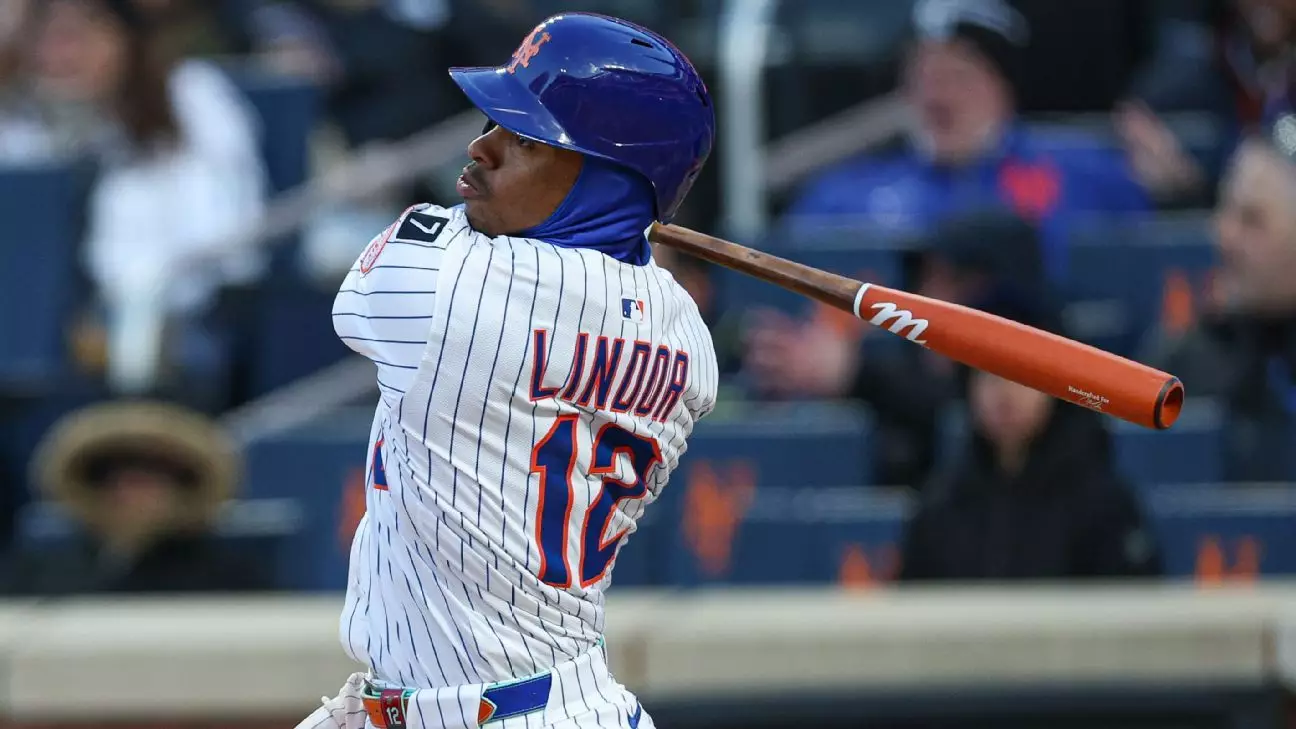In the world of professional sports, injuries are unfortunately all too common, and for athletes like New York Mets shortstop Francisco Lindor, the stakes are immensely high. On Wednesday, during a crucial game against the Los Angeles Dodgers, Lindor experienced a painful setback—a fractured pinky toe caused by a pitch from Dodgers pitcher Tony Gonsolin. Despite the nature of the injury, Lindor’s immediate response reflects a commendable resilience that encapsulates the spirit of modern athletes.
Rather than sulking in disappointment at his misfortune, Lindor’s attitude is one of determination. He is currently not expected to be placed on the injured list, demonstrating an eagerness to return to the field as soon as he’s able. Lindor’s statement, “If I can tolerate the pain, yes I will play,” showcases not just his competitive nature, but also an understanding of his responsibility towards his team. Such assertiveness in the face of injury is rare and signifies a strong commitment to the game.
The Game Within the Game
The intricate politics of playing through pain is a delicate balance for athletes. Lindor’s spontaneous decision to remain in the game, even when he appeared to be in significant distress, raises questions about the culture of perseverance in professional sports. Is it truly noble to continue, even when one’s body is sending distress signals, or does this narrative obscure the reality of long-term health risks? Lindor’s situation inadvertently puts this issue in the spotlight—not just for himself, but for younger athletes who may feel pressured to emulate such grit at their own expense.
His manager, Carlos Mendoza, emphasized a fitting point: “It wouldn’t be fair to play with 25 guys on the roster.” This sentiment speaks to the integrity and teamwork inherent in baseball. If an athlete cannot contribute their full capacity due to injury, it can compromise team performance. Lindor’s willingness to step back if needed reflects not just his personal values but a broader respect for team dynamics.
Keeping the Mind on the Game
Additionally, Lindor’s thoughts on the expected healing process allow fans a glimpse into the mental fortitude required at this level of competition. He acknowledges the likelihood of the injury becoming a “nagging thing”—a candid acknowledgment that athletes often endure physical discomfort that extends beyond any single injury. When asked about the pathway back to playing shortstop, Lindor expressed a firm belief: “If I’m good enough to hit and run, I should be able and good enough to play shortstop.” His pragmatic mindset stems from experience, and it showcases an athlete’s duality; he is both a competitor and a realist, a blend that serves as an inspiring model for aspiring players.
The Bigger Picture
While Luisangel Acuna stepped in during Lindor’s absence, and accomplished players like Brandon Nimmo are capable of filling key roles, Lindor’s absence resonates on a deeper level. He is not just any player; he was the National League MVP runner-up last season, and his contributions are felt throughout the lineup. As of now, his impressive statistics—.279 batting average with 14 home runs—speak to a player who is at the peak of his career. It’s this level of performance that not only helps the team win but builds a culture of excellence that inspires the entire franchise.
In reflecting on his past injuries, Lindor could put the recent fracture in the context of a long career marked by adversity. Having previously broken a finger during a series against the Dodgers in 2022, he recognizes that the journey of an athlete is often marred by both highs and lows. His statement, “It’s what God wanted this week, and I’ll deal with that,” further illustrates his acceptance of circumstance and the philosophical approach he has towards hardships faced on and off the field.
Through adversity, Francisco Lindor continues to exemplify resilience, not just for himself but to fans who look up to him. His career is not just about glory and accolades; it’s about navigating pain, team loyalty, and the relentless pursuit of mediocrity in a sport that often demands perfection.


Leave a Reply